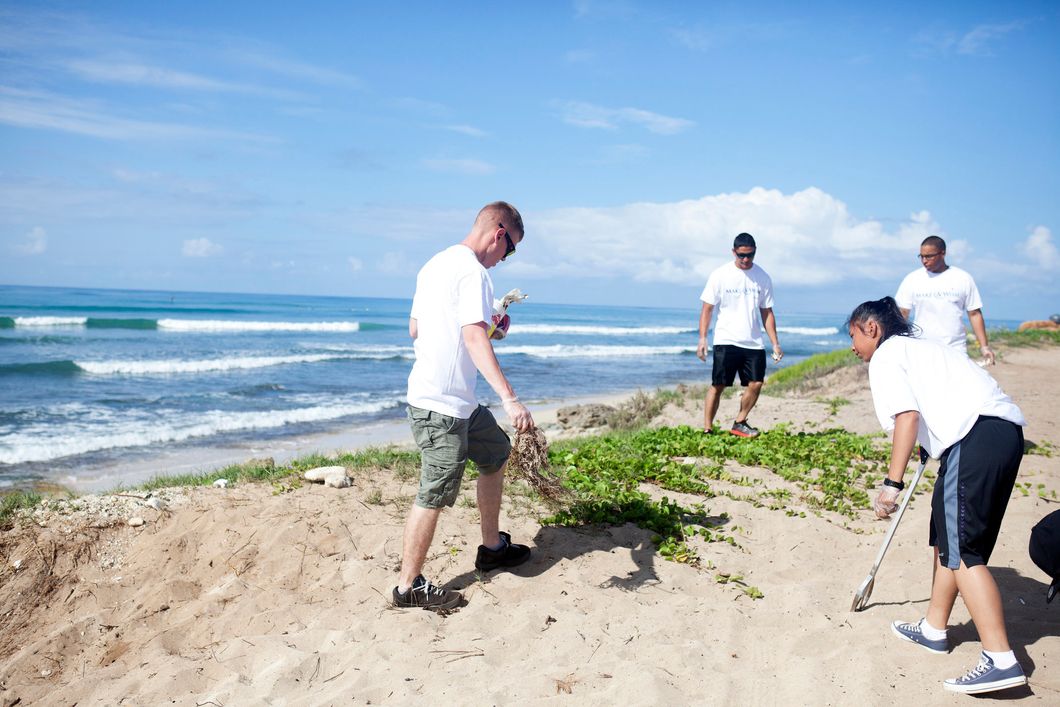How Can We Effectively Talk About Climate Change?
Is it the topic? Or is the direction of the conversation within our control?
This is a response to https://www.theodysseyonline.com/hitchhikers-guide-backyard
We can probably all agree that climate change is a very relevant and discussed topic. Some individuals believe in it, some do not, and some are confused with what it all entails and how it affects them. Aside from the very probable weather and natural disaster impacts it will have on climates around the world, climate change is also one of the topics that is having an impact on our ability to have political conversations.
So what's the issue?
Some younger folks may have experiences where they’ve tried talking about climate change with a relative or older person in their life, or even a peer, and felt discredited or made to feel that they are in the wrong for believing and wanting to fight climate change. I want to propose the idea that many folks, across different ages and backgrounds, have also probably been made to feel stupid for not believing in climate change. Sometimes they’ve been offered the science and other information required to support the belief that climate change is real and will have serious effects on our lives, and they choose to believe otherwise. This almost always leads to awkward, uncomfortable, and sometimes extremely problematic conversations.
But does it have to?
I recently graduated with my bachelor’s degree in Environmental Policy and Analysis and personally believe in climate change. But I certainly know I am not the smartest in the room, do not know everything when it comes to climate studies, and would not ever want someone to feel dumb when it comes to discussing the environment. I also would not want someone to discredit my education, the passion that I’ve poured into my degree and lifestyle in recent years, or make me feel dumb for trusting what I have been taught and feel is the reality of our situation. I’m confident that others feel the same.
How do we fix this?
Here are some tips I’ve collected over the years:
- 1. Be open-minded
It sounds simple, and so many people these days have it in their minds that they are open-minded and non-judgmental. But are we really open-minded if we consider the more accepting side as the only side? This doesn’t mean you have to forego your personal beliefs; it simply means allowing yourself to understand someone else’s position, the life they’ve lived that has led them to this point and seeing them as an equal human to you.
- 2. Listen
Instead of waiting to offer your side of the topic, trust that you’ll remember the key points of your own perspective and take the time to really listen to what the other person is saying. If we listen more, there may be details and parts of the story that we’ve missed or not understood before.
- 3. Be confident & respectful
When it comes time to offering your side, feel free to share everything that has led you to your current position and view. We all have different journeys; maybe you are farther along in the educational journey of a topic than the person you are talking with. Offering the information you know, in a confident and respectful manner, may have the power to open their mind and help you both come to a common ground.
Even if you have a conversation about a difficult topic, it doesn’t mean the conversation itself has to be difficult. The next time you are discussing one of these topics with someone with an opposing view, I encourage you to listen and stay open to their perspective. It can be quite educational, broaden your own horizons, and unite us all to work together instead of against each other to combat our shared issues.





 Kyra Holmes
Kyra Holmes




































